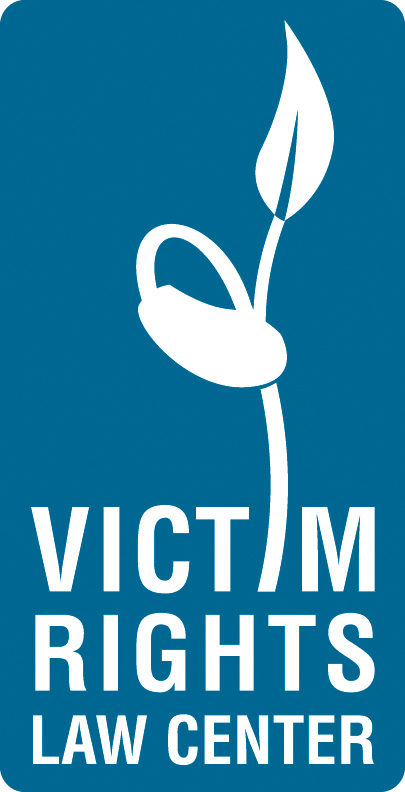Supporting Sex Trafficking Survivors: Legal Needs in “the Life”
Supporting Sex Trafficking Survivors: Legal Needs in “the Life”
By Alexia Tomlinson
Staff Attorney, Training and Technical Assistance, Victim Rights Law Center
This is the first blog in a series that recognizes Human Trafficking Awareness and Prevention Month. Read the second post here, and the third post here.
January is Human Trafficking Prevention Month. Survivors of trafficking or commercial sexual exploitation have extreme needs while they are in “the life,” the term used by survivors to describe their time in the sex trade. These needs overlap with the needs of sexual assault and domestic violence survivors, but survivors of sex trafficking are incredibly underserved when it comes to receiving services. The gap in services is particularly stark when it comes to legal support. This is of particular importance because, overwhelmingly, trafficking survivors also face criminal penalties as a direct result of their victimization.
Survivors in “the life” face charges not only for prostitution, but for crimes ranging from petty theft and minor possession charges, to aggravated robbery, and murder. Many plead guilty to these charges on advice from underpaid and overworked public defenders to avoid longer sentences or higher fines. The first conviction often kicks off a cycle of criminalization—trapping survivors with debt, criminal records making it harder to find legal employment, and underscoring messaging used by traffickers that no one else can be trusted.
Across the country, jurisdictions have attempted to correct this injustice in several ways. These solutions are a step in the right direction, but must be improved and expanded upon.
1. Stop Prosecuting Prostitution
Prosecutors in some states or cities have adopted a policy of non-enforcement, refusing to prosecute charges of prostitution. This can, and has, significantly improved the lives of individual survivors. Decreasing criminalization generally helps survivors feel safer and removes many of the barriers caused by a criminal record. Prostitution convictions carry significant stigma, and may prevent survivors from placements in recovery homes or receiving other services. This is an important change, but it cannot exist in a vacuum. Mere office policy is not sufficient; a legislative fix is vital.
2. Affirmative Defenses
Many states have implemented an affirmative defense, enabling survivors facing criminal charges to argue that their conduct was due to their victimization, and have the charges dropped. In theory, this is a powerful tool. And, in some instances, survivors have raised the defense. But for most, the reality is very different. Survivors rarely self-identify as “victims” of anything. Many survivors do not ever use the label to apply to their lives. To expect a survivor actively in “the life” to recognize their circumstances as trafficking and claim victimization is impractical and demonstrates a profound lack of understanding. It is integral that this option remain available to survivors, but it must be part of a comprehensive framework.
3. Increase Access to Criminal Record Clearing
Most states in the country have implemented laws enabling survivors to clear their criminal record of convictions received while in “the life.” This remedy, “vacatur,” can be life-changing for survivors – legally, it appears as though the arrest, prosecution, and conviction never even occurred. But jurisdictional limitations prevent many survivors from accessing this remedy. Some states time-limit vacatur, requiring survivors to apply either within a certain time after the conviction or requiring they wait a certain amount of time before applying. Some states limit application to only certain charges, or only allow survivors to expunge the convictions rather than vacate them altogether. Even when these types of limitations do not exist, survivors often face extraordinarily high barriers to prove to a judge that their convictions were a result of their victimization—a retraumatizing and prohibitive requirement. Addressing each of these limitations will make this remedy truly available and accessible for survivors across the country.
4. Increase Legal System Education
None of the changes mentioned above will be sufficient without ensuring that all those involved in the legal system understand trafficking victimization, know what indicators to look for, and know how to respond when they suspect an individual would benefit from support. Judges often lack a basic understanding of trauma and abuse and punish individuals for conduct or responses they deem inappropriate. Public defenders often see the same clients repeatedly facing prostitution charges without taking steps to connect them with appropriate services. Clerks and judicial staff keep an eye out for kidnappings and Wayfair cabinets rather than recognizing the real signs of trafficking victimization in the courthouse. Robust, well-funded education on the reality of sex and labor trafficking is necessary to ensure survivors avoid facing criminal penalties and instead, receive support.
Implementing these changes broadly would be the first step to addressing the legal needs of survivors actively in “the life.”
Alexia Tomlinson is a Staff Attorney with the Training and Technical Assistance team. Her prior representation of survivors of sex trafficking, in the United States and abroad, drives her to work to ensure every survivor of gender-based violence is supported.
